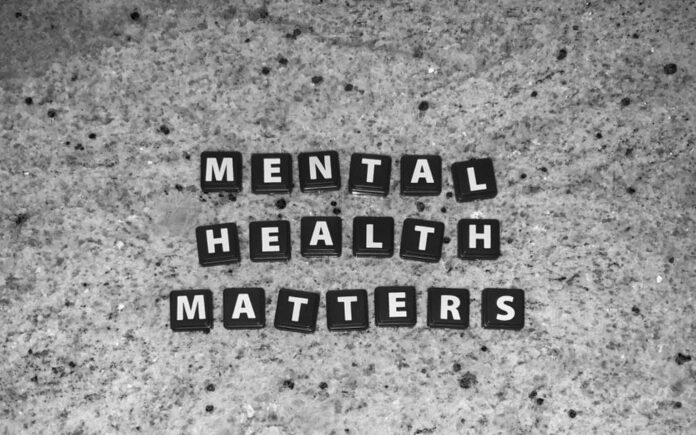Behavioral health refers to the study of your habits, biology and emotions and their effect on mental and physical wellness. It covers everything from how well you sleep at night to any addictions you might be suffering from.
Mental health studies a range of illnesses like depression and anxiety disorders; however, negative behaviors like self-harm or substance abuse do not always accompany various conditions, strictly staying in the mind. To learn more about the differences, read on.
Definitions and Differences
They can often be used interchangeably, but there’s a subtle distinction between them. Mental health is the study of mind-related medicine, disorders and treatment which focuses on one’s emotional wellbeing while behavioral health refers to relationships between behavior and overall well-being. Understanding this distinction will allow for proper care of any condition.
Behavioral health refers to the study of emotions, behaviors and biology as they relate to a person’s mental well-being, daily functioning and concept of self. Counselors, life coaches, psychologists or psychiatrists all qualify as professionals and can help individuals address depression, anxiety, eating disorders, addiction, stress or relationship problems.
Mental health refers to any illness or disorder affecting an individual’s mind, from depression and bipolar disorder to post-traumatic stress disorder and schizophrenia. Mental illnesses may result from genetics (source: https://ecmentalhealth.com/mental-and-behavioral-health) environmental factors or chemical imbalances within the brain. Symptoms range from sadness and low self-esteem to panic attacks and feelings of emptiness – with potentially serious physical consequences including high blood pressure, heart disease and diabetes as possible outcomes.
DSM-5 lists approximately 300 disorders. Depression, generalized anxiety disorder and bipolar disorder are the three most frequently occurring ones; their causes range from trauma, poor social support and drug or alcohol misuse to genetics or medical conditions such as diabetes or hypothyroidism.
They often go hand-in-hand, so it is crucial that both issues be treated simultaneously. Someone suffering from a condition may also struggle with eating disorders or substance abuse issues; therefore, all three issues need to be tackled simultaneously to improve quality of life for an individual. Therefore, working with a multidisciplinary team of behavioral health and medical professionals is essential.

Symptoms
They are inextricably intertwined. Behavioral healthcare encompasses habits, behaviors and actions which impact both one’s mental and physical wellness. Depression and anxiety often have direct adverse impacts on physical wellness. They may also be the root cause of other chronic health conditions like heart disease, diabetes or obesity.
Behavior health disorders typically manifest themselves through unhealthy behavior and can be affected by mental wellness conditions like depression and anxiety. Common signs include feelings of sadness or being overwhelmed by stress, difficulty sleeping or changes in appetite; while behavioral disorders may also negatively impact one’s mood by making them frequently irritable or angry.
Symptoms of behavioral health disorders can range from substance abuse, self-harm and addictive patterns like gambling or sexual addiction, all the way through to depression, bipolar disorder and schizophrenia – each having their own impactful impact on behavior.
Although it can be challenging to distinguish between expected behaviors and symptoms of mental illness, it’s vital that individuals know when it is necessary to seek professional assistance. If they experience feelings such as sadness, anxiety or depression that interfere with daily functioning or disrupt life as expected it’s time to see a therapist or counselor for advice.
Keep in mind that these fields are inextricably intertwined, often manifesting simultaneously in various cases – known as co-occurring disorders and quite prevalent.
Example: Someone experiencing depression often exhibits symptoms such as difficulty sleeping and irritability, leading them to engage in self-destructive behaviors such as binge eating or abusing drugs and alcohol to cope with their emotions. A therapist can provide talk therapy, cognitive behavioral therapy (which you can learn about here) and/or medication as ways of helping manage both their condition as well as problematic behaviors associated with depression.
Treatment
Mental and emotional wellness refers to an individual’s psychological and emotional well-being, including how they think, feel, interact with others and manage stress. On the other hand, behavioral health looks at an individual’s behavior and its effect on his/her mental and overall wellness.
Psychotherapy or counseling is one of the primary treatments available for all kinds of disorders, typically administered by licensed therapists either one-on-one or in group sessions. Counselors can offer family and marriage therapy, individual psychotherapy, art therapy and cognitive behavioral therapy (CBT), among other forms of counseling services. CBT helps people learn to change unhelpful patterns of thinking.
Other treatments for these disorders, including schizophrenia and depression, include medication and support groups. Medication may help restore balance to brain chemicals to alleviate symptoms associated with these conditions while support groups provide encouragement and guidance from peers dealing with similar challenges.
Behavioral health encompasses more than just mental wellbeing; it involves developing effective coping skills as a means of dealing with stressful events such as divorce or grief over loved one loss. Counseling and therapy may help develop these healthy coping mechanisms and avoid unhealthy behavior such as drinking excessively or substance abuse.

Prevention
Prevention strategies exist to address both of these issues, including education, lifestyle modifications, and treatment programs. The objective is to lower risk of disorders while shifting expected trajectories to less debilitating outcomes; research projects have been undertaken to assess their efficacy.
They differ substantially, with mental focusing on emotions and thoughts while behavioral looking at actions taken by an individual. Although those living with a mental illness typically exhibit negative behaviors like depression or insomnia, this doesn’t always lead to behavioral health issues; the latter occurs only if such destructive behavior persists over months or years. Therefore it is crucial to understand both types of health to ensure you receive the optimal care possible.
These conditions frequently co-occur, as depression often prompts individuals to use alcohol and/or drugs as self-medication. Therefore, both services and behavioral modification must often work hand-in-hand to treat both conditions simultaneously.
Although much has been accomplished to improve behavioral health, significant gaps remain due to the difficulty associated with diagnosing mental illness and limited funding available for prevention initiatives. There remains no clear distinction between psychology and behavioral medicine fields.
Read Also
- The Role of Ingredients in Your Skincare: What to Look ForSkincare works best when you understand what goes into the products you use daily. Ingredients form the foundation of every formula and determine how the skin reacts over time. Each cream, cleanser, or serum has its own role, determined by its ingredients. Learning what to look for helps you pick products that help skin and… Read more: The Role of Ingredients in Your Skincare: What to Look For
- Your Guide to Finding a Trusted DentistChoosing the right dentist in Sandgate or your area is crucial for maintaining good oral health and achieving a confident smile. With countless dental practices to choose from, patients may find the task daunting. Data from the American Dental Association indicates that there are over 200,000 practicing dentists in the United States, highlighting the importance… Read more: Your Guide to Finding a Trusted Dentist
- Achieving a Defined, Balanced Facial Contour in SingaporeA well-defined jawline and a gently tapered lower face — commonly referred to as a V-shaped face — is a look many people aspire to. In Singapore’s beauty and aesthetic scene, treatments that help refine facial contours have grown in popularity as more individuals seek subtle, natural enhancements that boost confidence and balance facial features.… Read more: Achieving a Defined, Balanced Facial Contour in Singapore
- The Wellness Blueprint: How Your DNA Holds the AnswerGenetic testing is revolutionizing preventive healthcare by offering insights into individual health risks. By analyzing DNA, these tests provide a personalized health blueprint that can guide lifestyle and medical decisions. This approach, often referred to as DNA wellness testing, helps to optimize health naturally and prevent potential diseases. In recent years, genetic testing has become… Read more: The Wellness Blueprint: How Your DNA Holds the Answer
- Exploring the Benefits of Infusion Therapy in OKC: The Ultimate GuideUnderstanding Infusion Therapy: A Deep Dive into Its Purpose and Process What exactly is Infusion Therapy? Infusion therapy is an advanced medical treatment that delivers medication and nutrients directly into the bloodstream through a vein, typically via an IV (intravenous) line. This method is particularly beneficial for patients who require a concentrated dose of medication,… Read more: Exploring the Benefits of Infusion Therapy in OKC: The Ultimate Guide






